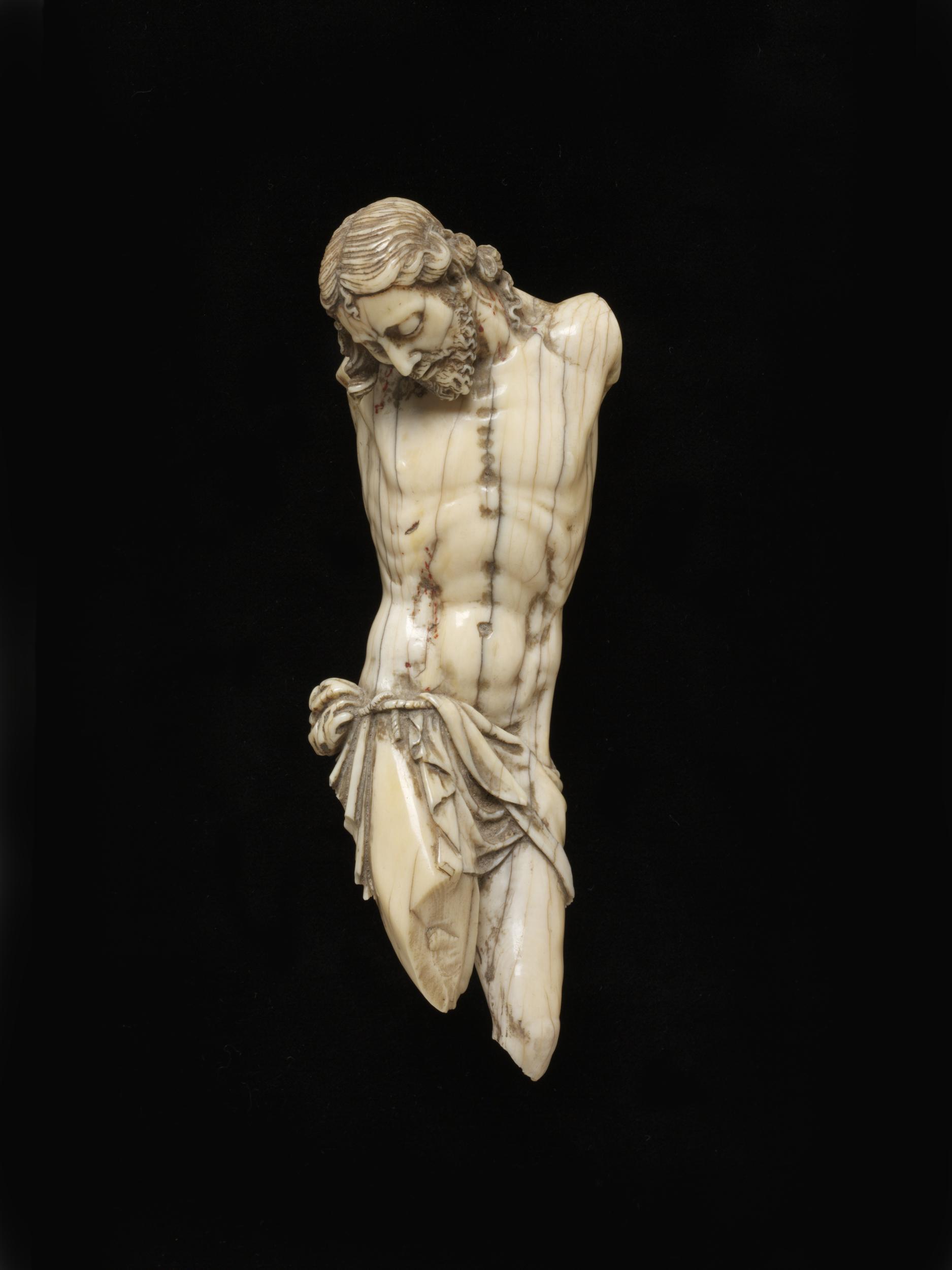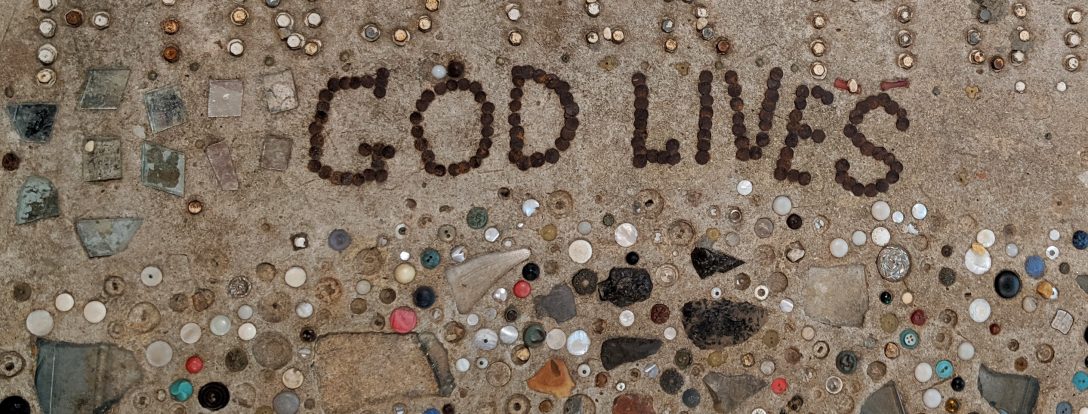LOOK: Crucifix figure by Giovanni Antonio Gualterio

LISTEN: “Christ’s dying love; or, our pardon bought at a dear price” (aka “Condescension”) | Words by Isaac Watts, 1709 | Music: Appalachian shape-note tune, ca. 1800; published in The Southern Harmony, and Musical Companion (new edition, thoroughly revised and much enlarged), ed. William Walker, 1854 | Arranged and performed by Timothy Seaman on bamboo flute, 2021
How condescending and how kind
Was God’s eternal Son!
Our mis’ry reached his heav’nly mind,
And pity brought him down.When justice, by our sins provoked,
Drew forth its dreadful sword,
He gave his soul up to the stroke
Without a murmuring word.He sunk beneath our heavy woes,
To raise us to his throne;
There’s ne’er a gift his hand bestows
But cost his heart a groan.This was compassion like our God,
That when the Savior knew
The price of pardon was his blood,
His pity ne’er withdrew.Now though he reigns exalted high,
His love is still as great:
Well he remembers Calvary,
Nor should his saints forget.Here we behold his bowels roll,
As kind as when he died;
And see the sorrows of his soul
Bleed through his wounded side.Here we receive repeated seals
Of Jesus’ dying love;
Hard is the heart that never feels
One soft affection move.Here let our hearts begin to melt
While we his death record,
And with our joy for pardoned guilt,
Mourn that we pierced the Lord.
Virginia musician Timothy Seaman plays a variety of instruments, including the hammered dulcimer, mountain dulcimer, various flutes and whistles, bowed and plucked psalteries, and guitar. He has recorded fifteen albums featuring his instrumental arrangements of traditional music (especially American mountain and Scots-Irish tunes), as well as original compositions, many of them inspired by local wildlife and nature and by the Christian faith. He has eight years’ worth of videos on his YouTube channel, a mix of tutorials and informal performances. For this time of year especially, I’d also commend to you another of his Appalachian folk hymn arrangements, “Behold the Lamb of God” on hammered dulcimer.
Of “Condescension,” he writes,
In 1986 I found this profound folk hymn in an old book, and I’ve loved to play and sing it ever since—but not till now have I recorded it. I’ve considered ensemble arrangements with intriguing chords and rhythms, etc., but I keep coming back to a cappella bamboo flute, or voice. Here it is in its instrumental form! The tune is anonymous, and the words are by the master hymn writer Isaac Watts.
Click here to access the lead sheet for “Condescension.” It was made by Seaman and is shared here with his permission.
For a vocal performance, see The Shapenote Album by The Tudor Choir, directed by Doug Fullington.
The mention of rolling bowels in the sixth stanza may sound strange to us today (sounds like a digestive issue!), but traditionally, the bowels were regarded as the seat of tender and sympathetic emotions—felt in the gut. Several of the biblical authors mention the moving of that organ in relation to yearning, anguish, compassion, or mercy (e.g., Gen. 43:30; Isa. 63:15; Jer. 4:19; 1 John 3:17). The KJV translation preserves the expression, still commonly used in the seventeenth century, with literalness, translating the Hebrew mēʿê and Greek splagchnon as either “bowels,” “belly,” or “inward parts.” Today we locate such emotions in the heart instead.
This stanza is actually my favorite in the hymn. There’s such a poetic quality to it! Watts is meditating on Christ exalted, who is not at all impassive in that high estate, but rather is still moved to compassion for humanity, every bit as much as when he hung on the cross. He still bears the wounds of crucifixion, and, in a figurative sense, those wounds still bleed for us.
Here we behold his bowels roll,
As kind as when he died;
And see the sorrows of his soul
Bleed through his wounded side.

This image is stunning.Well done!
LikeLiked by 1 person